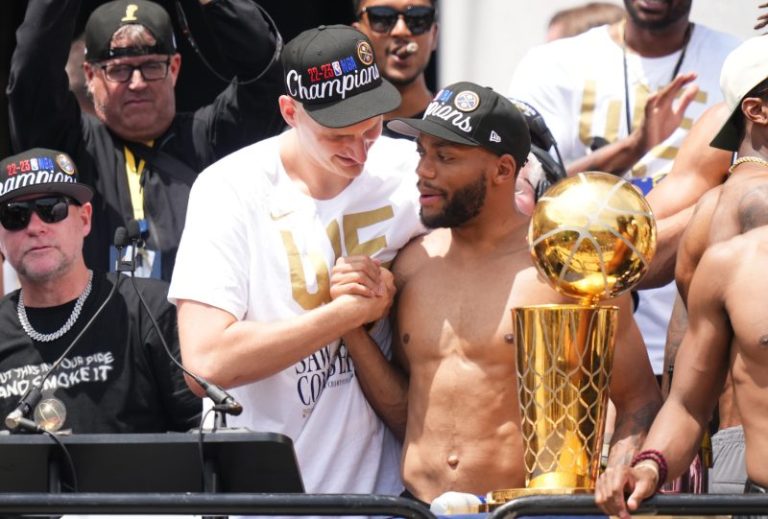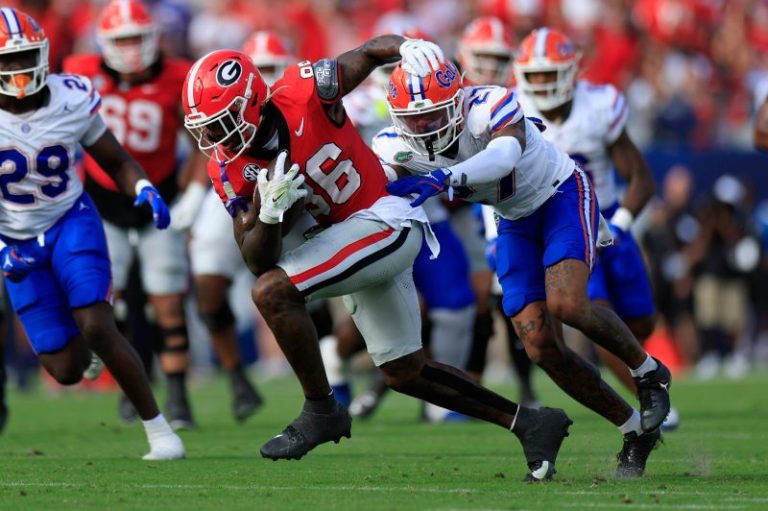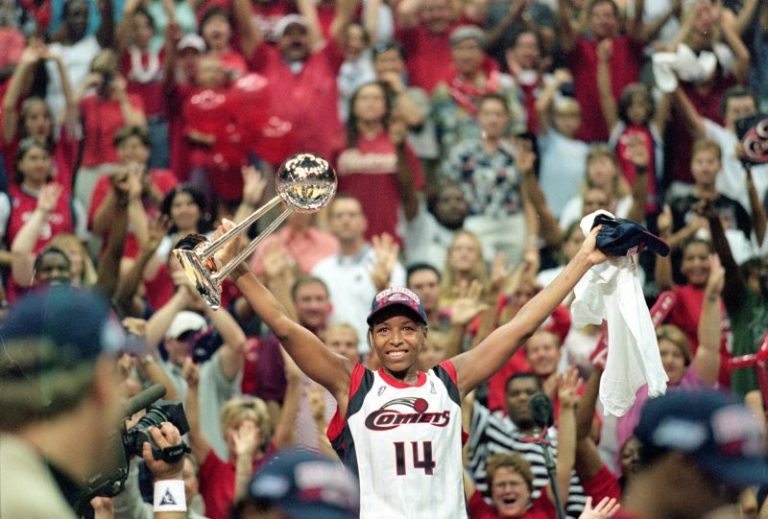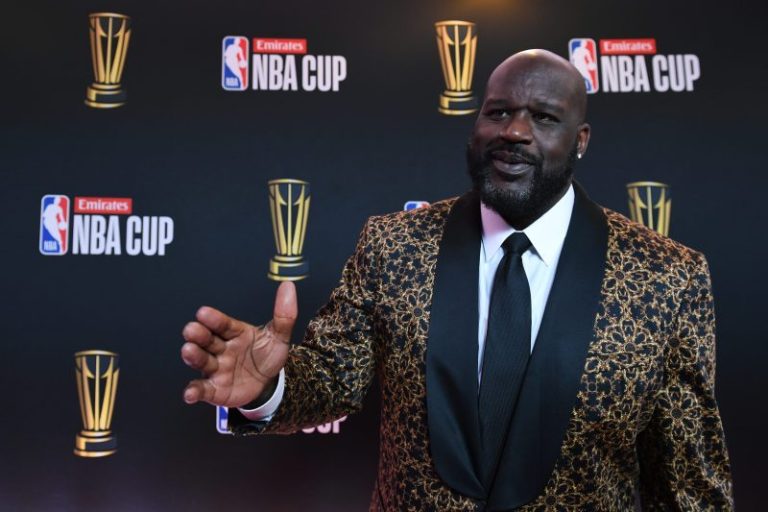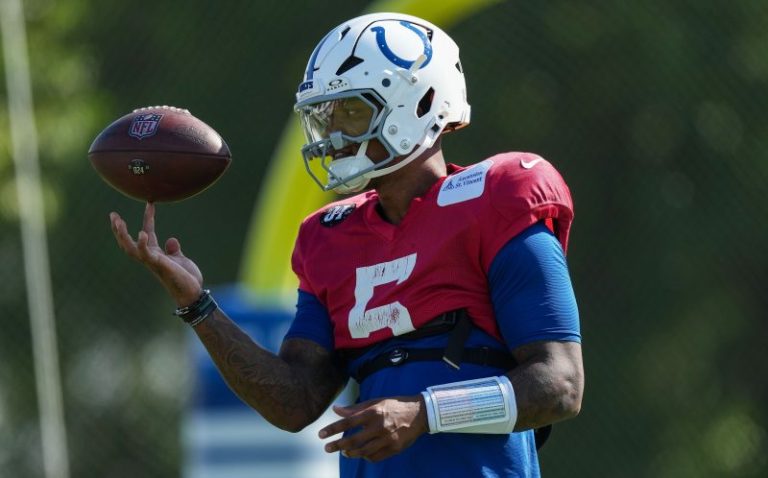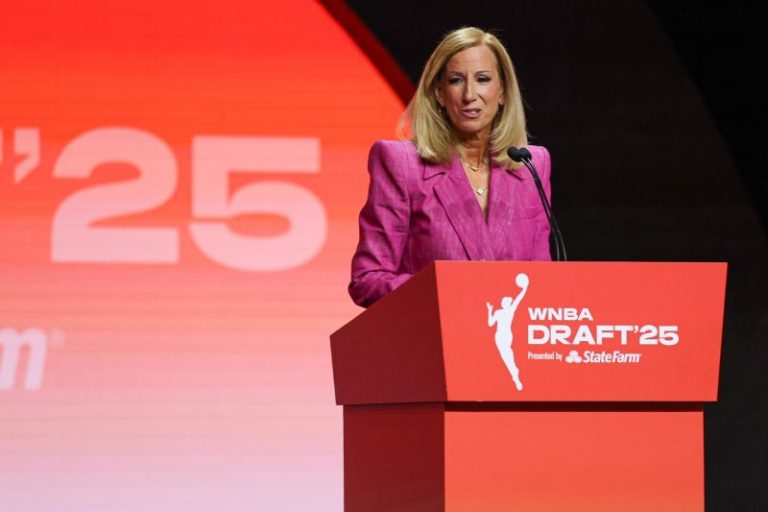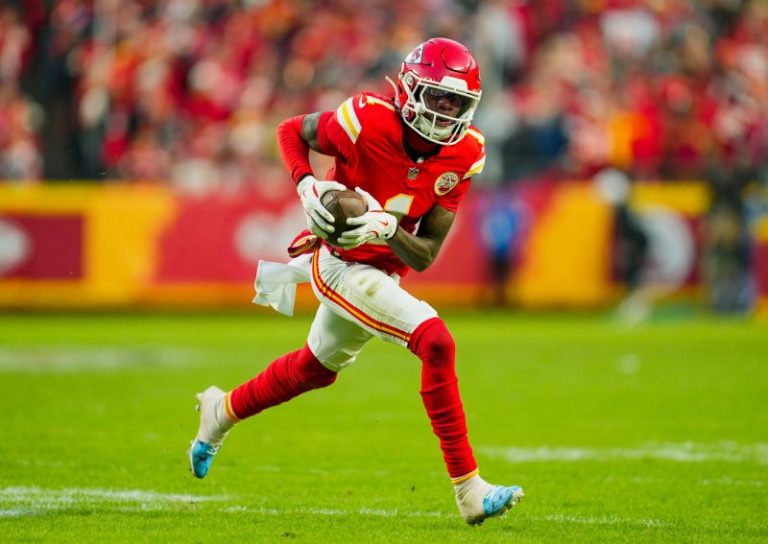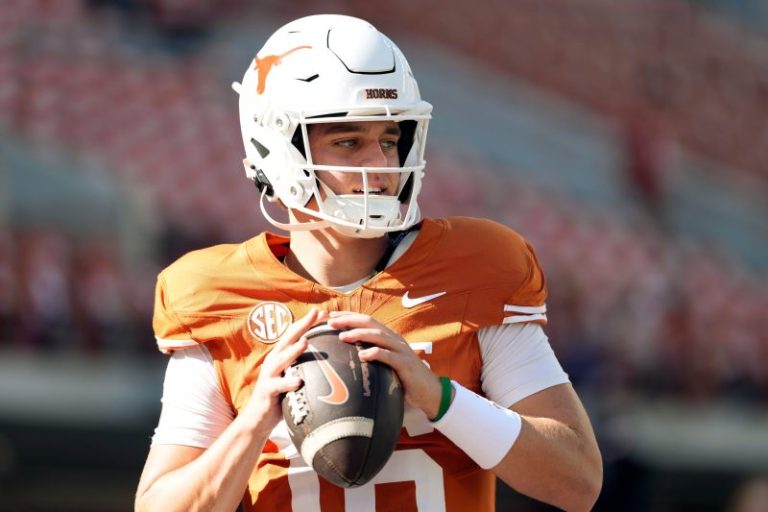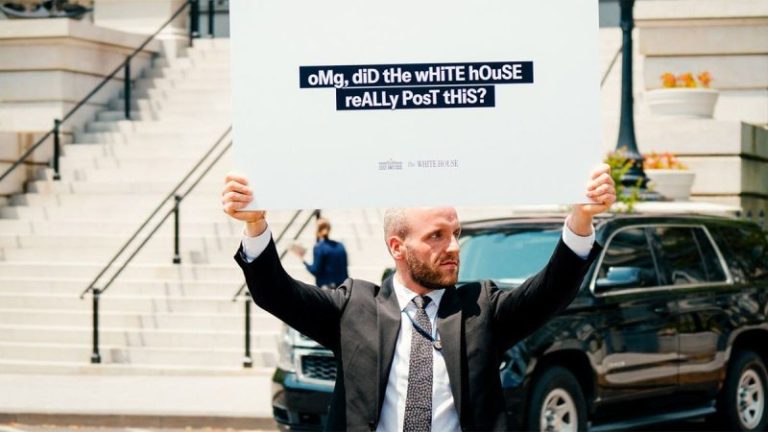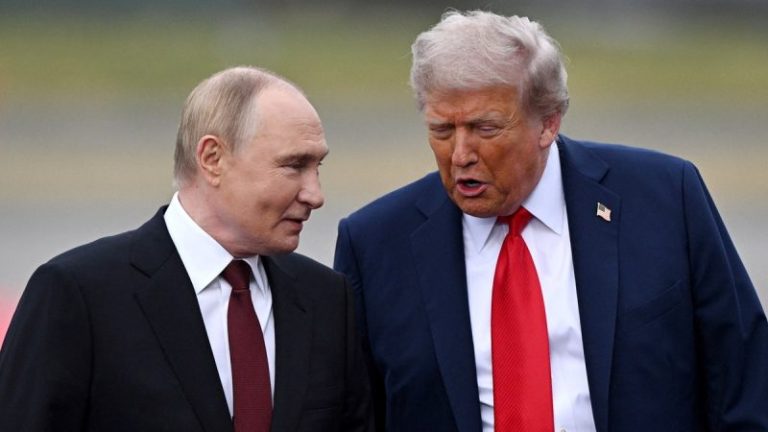The Connecticut Sun is looking for a new home and neither Boston nor Hartford applied for expansion.
The league maintains cities, including Houston, which did apply and were vetted, would get first dibs.
WNBA commissioner Cathy Engelbert said, ‘There are a variety of cities that obviously bid – and one of those I wanted to shoutout … is Houston.’
The walls and ceiling within the Houston Comets’ locker room were shaking from the unbridled energy emanating from the capacity crowd, which was separated by a razor-thin barrier of drywall.
Moments before their WNBA Finals contest against the New York Liberty in 1999, Comets coach Van Chancellor relayed the game plan to his players – who would soon be sprinting out of the tunnel into the chaotic scene.
WNBA architects including president Val Ackerman and NBA commissioner David Stern had envisioned this type of raucous atmosphere, and it was already coming to fruition during the league’s earliest days.
Years before Caitlin Clark and Angel Reese were born, the Houston Comets won the WNBA’s first four championships. Now, after 17 years without a team, “Clutch City” may be in line for a franchise revival. The Connecticut Sun is looking for a new home and neither Boston nor Hartford applied for expansion, despite former Celtics minority owner Steve Pagliuca offering to buy the team for $325 million. The league maintains cities, including Houston, which did apply and were vetted, would get first dibs.
During a June 30 news conference announcing the addition of expansion teams in Detroit, Cleveland and Philadelphia, WNBA commissioner Cathy Engelbert said, “There are a variety of cities that obviously bid – and one of those I wanted to shoutout, because they have such a strong history in this league and they are a great ownership group – is Houston.”
Engelbert also added, “I would say that’s the one obviously we have our eye on.”
Houston, 25 years removed from its glory days, fully embraced the Comets and their megastar lineup which included Cynthia Cooper, Sheryl Swoopes and Tina Thompson. Cooper, a four-time WNBA Finals MVP whose on-court dominance was paired with an oversized personality, was a fan favorite.
“Someone recognized me on the freeway and then they just followed me … to get an autograph,” Cooper told USA TODAY Sports, recalling the fan fervor. “It was great recognition for what I, individually, and what we as a team, were doing out there on that court. The fans in Houston (were) just amazing; they supported us every step of the way.”
Diana Taurasi, who patterned her game after the Comets’ Big 3, recognizes Houston’s rich history in the league.
“When you talk about dynasties, you talk about the Bulls, the Lakers, the Celtics. Well, in the WNBA, it’s the Houston Comets,” said Taurasi, a three-time WNBA champion and arguably the greatest player in league history. “They paved the way for all these legacies and dynasties in the WNBA, so Houston has got to be back on the map.”
The idea of placing a team in Houston is popular among current WNBA players.
During All-Star weekend in Indianapolis in July, the league’s elite were asked which city deserves a team. Houston was a popular choice, advocated for by Reese, Sydney Colson and Nneka Ogwumike.
Ogwumike, who grew up in Houston during the Comet’s reign of dominance, further accentuated her choice by “throwing up the H,” a popular hand gesture used by Houstonians.
To fully understand Houston’s appeal in either expansion or relocation, you need only look at the passion the city had for the Comets. The team averaged more than 14,000 fans a game during the playoffs from 1997-2000.
“I had the pleasure of covering the Bulls in Chicago during their two three-peats,’ said Jeff Hagedorn, the Comets play-by-play announcer from 1999-2005. “That was the most attention I ever saw a team get from their fans. But the Comets? They were a close second. The city embraced them as champions, and the fans were as passionate as any I’ve ever observed.”The team’s affable Hall of Fame coach Chancellor was a big reason. He celebrated the fans by handing out candy prior to each home game. Chancellor recently recalled an encounter he had with a season ticket holder looking for some sugar.
“Some lady (came) up to me and said, ‘Hey, I’m in row 16, seat 3, would you please throw me a piece of candy?’” Chancellor said. “In ’97, ’98 – those years, we had the best fanbase that’s ever been in the WNBA.”
Comets fans were all in.
“We would do an interview after each game, and fans wouldn’t leave,” said Jim Kozimor, the play-by-play broadcaster in 1997 and ’98. “They wouldn’t head to the exits (because) the show wasn’t over. The players would acknowledge them, (and) they felt like they were a big part of the success. There was a real love affair.’
Hagedorn, who replaced Kozimor when he joined the Sacramento Kings, also witnessed the postgame hysteria.
“I couldn’t leave my spot on press row; I was literally stuck. The fans were swarming! I just sat there watching, smiling and shaking my head. They were the toast of the town,” said Hagedorn, whose signature live call described any Comets player who was in the zone as: “burning with the white-hot intensity of a thousand suns.”
Chris Wragge, who alongside Mike Breen and Ann Meyers, was part of NBC’s national broadcast team, was also impressed with the fan support.
“What Caitlin Clark is to the WNBA now, that is what the Comets were to the league,” said Wragge, who also served as sports anchor at KPRC in Houston. “There was no better draw; there was never an empty seat in the house.”
The fans were devoted during the good times and bad, including Game 2 of the 1999 WNBA Finals. The New York Liberty’s Teresa Weatherspoon hit the game-winner with a three-quarter court buzzer beater to stun the Comets, 68-67.
“I’ve been doing this for 30 years and that was the loudest arena I have ever heard,” said Tom Savage, who ran Comets PR for two seasons.
With confetti prematurely falling at the Compaq Center to celebrate a third title, the once-boisterous crowd grew silent.
“The quietness was deafening,” Savage said. “(It was) almost like your ears were ringing and then there was nothing.”
Cooper said: “That contrast was striking.”
But while the fans displayed their affection with a quiet hush and a few tears, nothing compared to the way the community rallied around Kim Perrot, the scrappy point guard who made the team after impressing during an open tryout.
Perrot was diagnosed with lung cancer in early 1999. The cancer spread to her brain and Perrot died six months later, on Aug. 19, 1999, at age 32.
Among the initiatives Comets fans undertook on behalf of their beloved player was raising money for “Kim’s Place,” a lounge for teens and young adults battling cancer. Located at MD Anderson Cancer Center, the lounge has a jukebox, pool table, video games, and rooms for counseling and classes.“They let us know that they weren’t just there as fans; they were there as a part of the Houston Comets organization – struggling with the same thing we were struggling with as far as losing Kim Perrot,” Cooper, a close friend of Perrot’s, said. “The city of Houston rallied around us.”
The highs of lows that the franchise experienced, especially during the championship seasons, galvanized the community and their hometown heroes.
“The bond between the Comets and their fans was one rarely found in sports,” said Bob Schranz, the Comets media relations manager from 2001-2005. “The season ticket holders were more like a family than a fanbase. You had players and a host of fans literally on a first-name basis.”
With all its rich history and a once-fanatical following, could the WNBA resurrect the Comets? The Houston Rockets could be a part of the Comets return.
“We remain committed to exploring every avenue to bring a WNBA franchise back to the City of Houston,” Gretchen Sheirr, the Rockets president of business operations, said in a statement to USA TODAY Sports.
The Rockets, led by their owner – restaurant and casino mogul Tilman Fertitta, are on board, and as for Houstonians – Chancellor summed it up by saying, “This fanbase is ready to explode again.”
Cooper, for one, saw that support first hand, listening to the crowd’s roar from the locker room in 1999, running out of the tunnel to those cheers and delivering four titles. She has no doubt those same fans, paired with a new generation, would welcome a WNBA team.
“The city of Houston misses the Comets and misses having a WNBA franchise to support, and I think this is a great time for it,” Cooper said. “I’m excited for the opportunity and the possibility, and I know that there are tons of fans here ready to support it.”
This post appeared first on USA TODAY

